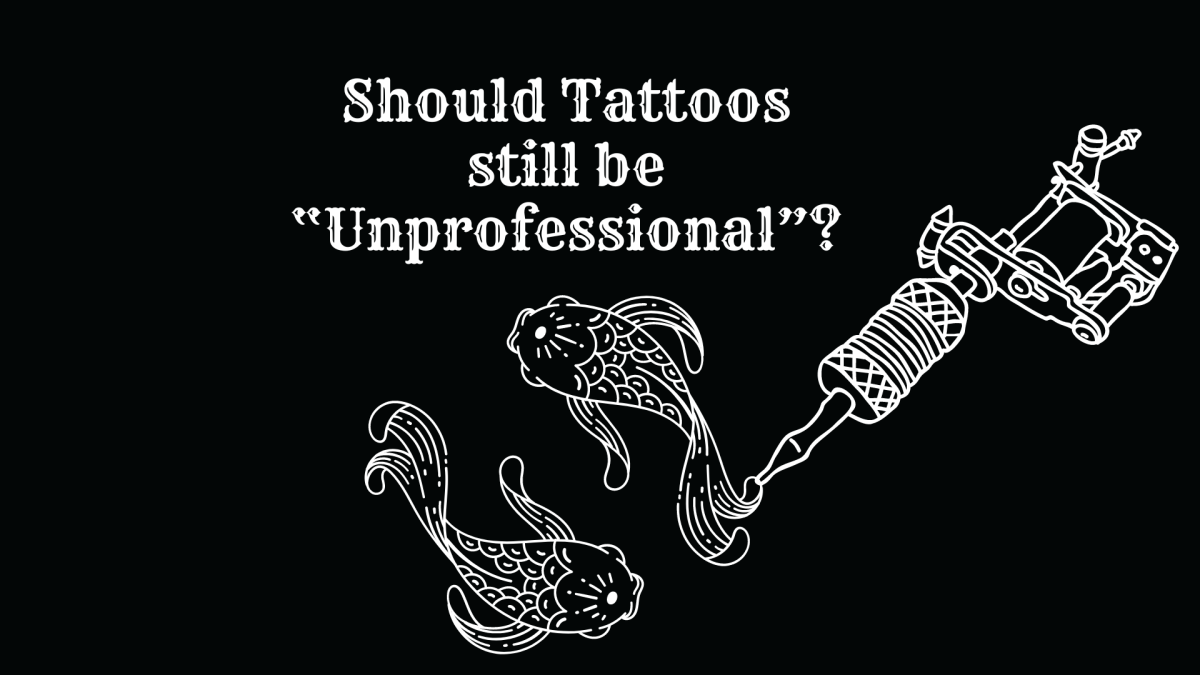In the workplace tattoos are required or heavily suggested, to cover up. They are seen as unprofessional and unfit in certain professions. Why is this happening? Should they still be considered unprofessional?
What is a tattoo and what about them makes places of work view them as unprofessional? Tattoos have been around for thousands of years and have been used by many indigenous groups worldwide. A tattoo is an artistic form of body modification that uses needles to puncture and embed ink into a person’s skin, leaving an artistic design behind.
How have tattoos come to be seen as unprofessional or inappropriate for the workplace? In the past, they have been associated with criminals, sailors, bikers, and even gang members. Tattoos are also accosted with rebellion and nonconformity. These associations, however, are purely for symbolism. In modern times many tattoos don’t have the same meanings as those held in the past. Many people get tattoos as an artistic form of self-expression or even memorials for their loved ones. In many indigenous cultures tattoos have a great significance, and they can even be used to symbolize trophies or displays of life achievements.
Society has become more accustomed to and accepting of body art and modifications. A study at Rowan University found that people’s perceptions of others in a professional setting don’t change when tattoos are visible. The reason for this issue of having to conceal tattoos in modern times stems from older generations and certain religions that see tattoos as unclean and shameful. Because of this, many companies will require, or heavily suggest, that their employees cover up their ink and remove piercings.
Whether you want or agree with tattoos, they are important to those with them. As a whole, we need to accept that people will have different values and see others trying to live just like anyone else. Tattoos don’t affect a professional setting; only those who judge others for what they choose to do with their body.












